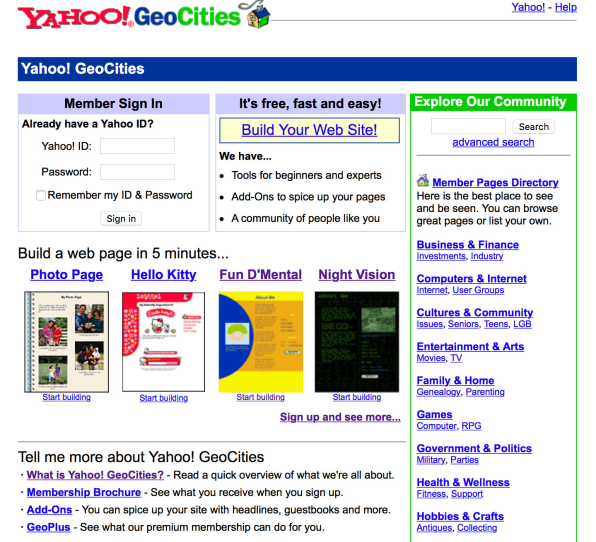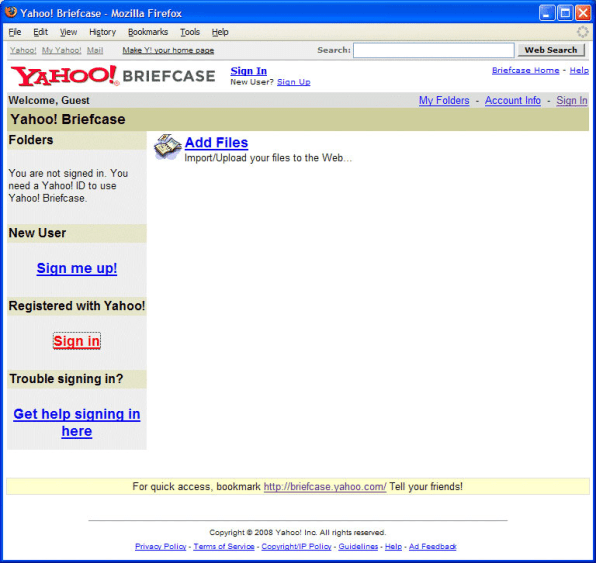
“Yahoo murdered and screwed Flickr out of relevance.”
This is what Flickr founder Steward Butterfield was found telling Gizmodo when he was asked about his (now acquired) company’s status. Unfortunately, for Yahoo, the tank of Flickr was not the first or the last blunder made in their
The company started off as a force to be reckoned with. Yahoo was Silicon Valley’s headstart. It was founded at the peak of the dot-com boom and was the most popular kid on the block from the late ‘90’s up until the mid-2000’s.
For many, it was the only definition of “the internet”. Today, the story is not quite the same. Yahoo! Corp. is on an irreversible downward slide and is showing no signs of recovery, no matter what the strategy is.
So, what went wrong over the years in this once giant multimillion dollar company? What caused the ultimate demise and final trigger for Yahoo!’s downward spiral? Let’s start at the start.
The Beginning:
Yahoo launched as a portal in a time when the internet was very differently conceptualized. The founders, David Filo, and Jerry Yang created “Jerry and David’s guide to the World Wide Web”. This guide was essentially yellow pages for the internet; an index of sorts
This page was then renamed to Yahoo!, which stood for “Yet Another Hierarchically Organized Oracle”. This “oracle” was initially found on akebono.stanford.edu/yahoo. However, due to its growing popularity, the founders bought the domain yahoo.com in 1994. By January 1995, the simple internet index had received one million hits.
The next logical step was to convert this into a legitimized business and so, funding was sought. After two venture capital rounds, Yahoo’s initial public offering was put out in 1996, just two years after its official founding.
1997 to 1999 was a very interesting timeline for Yahoo!. The company knew that the only way ahead was to rapidly grow and become the go-to name. The one strategy they saw for this was acquisitions. So, they acquired FourMail and ClassicGames.com. These companies became Yahoo! Mail and Yahoo Games respectively. Other companies they acquired included – Yoyodyne Entertainment, web hosting service- GeoCities, and eGroups.

In 1998, the company launched a paging service called Yahoo! Pager and a year later, they refurbished it into a messaging service. This was called Yahoo! Messenger.
The one thing that gave Yahoo a niche above its competitors was that it was well-established and present at the pinnacle of the dot-com boom. In December 1999, the stock of Yahoo doubled and closed at USD 118.75 a share. A few days later, Yahoo! Japan became the first stock ever to trade at USD 962, 140, i.e., ¥100,000,000.
During this boom, there were also rumors about an alleged eBay and Yahoo! merger. This deal, however, didn’t come through. They, however, did partner for creating a marketing and ad firm in 2006. In 2000, the company also signed an agreement with Google where the Google engine would power searches done on Yahoo!.
Yahoo was first on the block for a lot of internet services we use without a second thought these days. As a digital business, Yahoo was the first one to develop pay-per-click display advertising. The strategy is now used by internet businesses worldwide. Yahoo! also had Broadcast.com before Youtube, Flickr before Instagram, Briefcase before Cloud, and Yahoo Music before Saavn or Spotify.

Credits: FastCompany
Yahoo! pioneered the now-cliche startup culture. Tom Parker – copywriter and creative director from ‘98 to ‘04 – says that they essentially invented digital entrepreneur culture. The employees treated Yahoo! as a sacred space and were often referred to as “bleeding purple.” “It was casual on a college level,” he says. “David Filo didn’t wear shoes. You could wear shorts and flip-flops to work. It was super entrepreneurial, which is now kind of a cliché.”
The Downward Slide
However, not everything kept going stellar for the company. Post the dot-com boom came the crash. Here is where things got rocky. In September 2000, the Yahoo! stock crashed to an all-time low of USD 8.11. Here is also when the company lost advertisers and investors.
In 2002, Yahoo! got its second shot to go for Google. The founders of Google had come previously to them in 1998 with an offer of USD 1 million which David Filo rejected. In 2002, Yahoo! CEO, Terry Semel made an offer to buy Google for USD 3 billion but this offer fell through too. Larry Page and Sergey Brin were on a hold out for USD 5 billion instead. Thus Yahoo! twice lost out on the chance to take over the company which soon became one of the biggest reasons for its obliteration.
However, this is not the only famous acquisition the has-been company has embarrassingly lost out on. Facebook, Youtube, and the iPhone were also included in the pitches made to Yahoo! but none of them were entertained seriously.
In early 2006, when the company wanted to beta test their new homepage on popular browsers, they only made it available to Chrome and Firefox. Users of other browsers such as Opera did not condone this move.
There are also many other reasons that people cite as to why Yahoo failed as a business venture but there is a significant one that most agree on. Yahoo!’s biggest strength – digital marketing and advertising – became their biggest vice due to the lack of a correct execution.
While selling ad space to marketers, Yahoo! did not allow paid results to
“Trying to be everything to everyone was Yahoo’s downfall.”
While Yahoo! originally started as an internet index, its operation had gone haywire somewhere down the line. It did not have the clarity in its vision. Was it a search engine? Mail service? Social media network? Internet directory? By the end of its confusing acquisition schemes – neither the investors and customers nor the founders had any clarity.

Credits: wewereyahoobook.com
“We were like Eratosthenes, whose nickname was Beta because he was second best at everything he tried,” says Tom Parker. “That was Yahoo. We had a few core products like mail that
Its large string of CEOs with incoherent agendas did not set up the company for good either. Be it Jerry Yang – who “aggressively turned down” Microsoft’s offer to buy Yahoo!, or Marissa Meyer who tried to transform it into a mobile tech company.
The lack of a focused leader, ethos, and motives are some of the factors that killed Yahoo until no one bled purple anymore.











